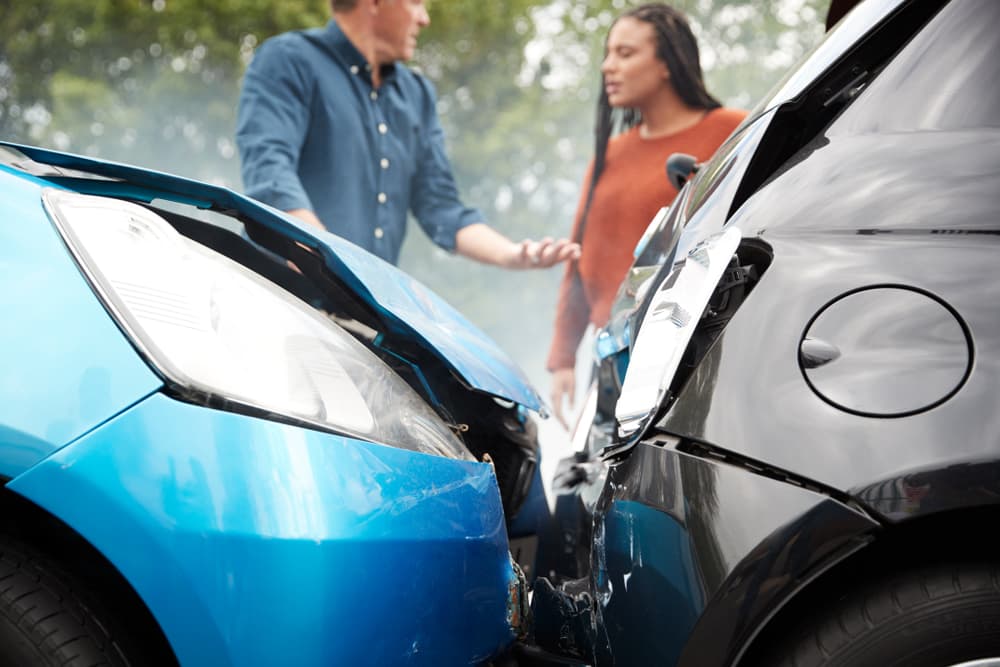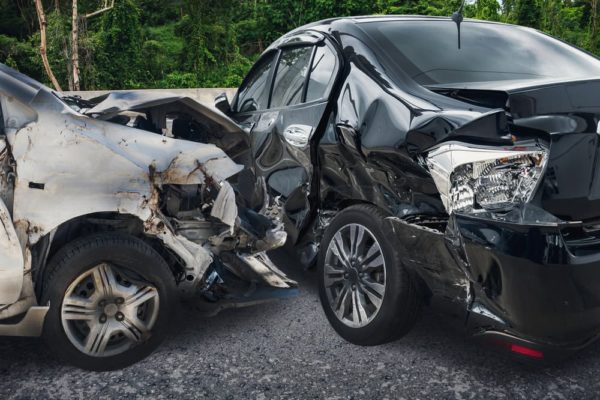Car Accident Information, Car Accidents
Driving Without Insurance in Texas

It is an unfortunate fact of life, but accidents happen. Every day in Texas, people behind the wheel find themselves in a collision with other drivers and sadly suffer injury to their bodies and their vehicles. However, the greatest loss in a fender bender tends to occur when one or both parties is uninsured.
Car insurance benefits not only you and your vehicle, but others who might end up in an accident with you as well. Without car insurance, both you and the other party or parties involved in an accident can end up paying thousands of dollars out of pocket. If you were involved in a car accident in Texas, contact an Austin car accident lawyer right away.
Types of Insurance Coverage in Texas
Chapter 601 of the Texas Transportation Code is known as the Texas Motor Vehicle Safety Responsibility Act, and Texas Transportation Code § 601.051 establishes a requirement of financial responsibility. Under this state law, a person cannot operate a motor vehicle in Texas unless financial responsibility is established for their vehicle through either a motor vehicle liability insurance policy that complies with Subchapter D; a surety bond filed under Texas Transportation Code § 601.121; a deposit under Texas Transportation Code § 601.122; a deposit under Texas Transportation Code § 601.123; or self-insurance under Texas Transportation Code § 601.124.
Texas Transportation Code § 601.008 establishes that a violation of the Texas Motor Vehicle Safety Responsibility Act is punishable by a fine of up to $500 and/or confinement in county jail for up to 90 days. In general, a first offense of driving without insurance will cost up to $350 for a fine, but you will also face a surcharge of $250 that must be paid for three years.
Fines can reach $1,000 for second or subsequent offenses and those also involve three years of $250 surcharges. All of this is not to mention that you can face the possibility of your vehicle being impounded, which will only add more fees to be paid and your vehicle will not be released until you can prove you have valid insurance.
Even worse, you could also be required to obtain an SR-22 insurance form from your insurance company if you are responsible for an automobile accident, which is a type of high-risk motorist insurance typically reserved for people convicted of driving while intoxicated (DWI). There may be an automatic suspension of your vehicle registration and driver’s license for up to two years.
Under Texas Transportation Code § 601.195, a person commits an offense if they are required to establish financial responsibility, do not maintain evidence of financial responsibility, and during the period evidence of financial responsibility must be maintained, operates a motor vehicle or knowingly permit another person who is not otherwise permitted to operate a vehicle to operate on a highway a motor vehicle owned by the person. This offense is a misdemeanor punishable by a fine of up to $500 and/or confinement in county jail for up to six months.
According to the Insurance Information Institute (III), 8.3 percent of drivers in Texas are uninsured, which is 40th in the nation (Mississippi is highest with 29.4 percent while New Jersey is lowest with 3.1 percent). Texas requires all drivers to maintain automobile insurance policies with 30/60/25 coverage, which means $30,000 of coverage for injuries per person, up to a total of $60,000 per accident, and $25,000 of coverage for property damage.
Not Having Proof Of Insurance
Texas does recognize two defenses to driving without proof of financial responsibility offenses. Texas Transportation Code § 601.193 states that it is a defense when a person produces to the court one of the forms of evidence of financial responsibility listed in Texas Transportation Code § 601.053(a) that was valid at the time of an alleged offense, and Transportation Code § 601.194 provides that it is also a defense that a motor vehicle operated by a person was in the possession of that person for the sole purpose of maintenance or repair and was not owned in whole or in part by that person.
UM/UIM Claim Overview
In Texas, you will want to carry uninsured motorist insurance (“UM/UIM insurance”). This will protect you in case you are in a collision with an underinsured or uninsured driver and they are at fault. In either case, the driver will not have enough liability insurance to financially compensate you for your injuries.
It may be a good idea to purchase a separate UM/UIM insurance policy since the uninsured motorist coverage that is included with a regular auto insurance policy is usually not enough. UM/UIM insurance is always optional, but if you refuse it, you must do so in writing to your insurance company.
UM/UIM insurance will cover you in a variety of circumstances, whether it be the other driver’s insurance company denying coverage for the claim, if the insurer has gone bankrupt, or if you were the victim of a hit-and-run accident.
Without UM insurance in a hit-and-run, you will not be compensated for damages to your vehicle. This is only because, in a hit-and-run, you are unlikely to find the driver who damaged your vehicle.
Texas law requires that you have the following minimum liability coverage:
- $30,000 of bodily injury coverage per person;
- $60,000 of total bodily injury coverage per accident; and
- $25,000 of property damage coverage per accident.
If you have suffered whiplash or any back injuries, medical operations to fix these issues can cost thousands of dollars. Having the extra protection can be a lifesaver.
It is a good idea to review your UM/UIM insurance coverage every six months. Your insurance carrier will usually allow you to add more coverage to your policy in increments of $5,000.
What You Can Seek from Your Coverage
Under UM/UIM insurance, the bodily injury coverage will cover certain costs without deductibles. UM/UIM insurance can cover your injuries, any passenger injuries, and the cost to repair your vehicle.
The following costs are covered under UM/UIM insurance:
- Past and future medical costs;
- Lost wages;
- Lost earning capacity;
- Long-term care;
- Pain and suffering; and
- Funeral costs
Texas is an At-Fault State Regarding Car Insurance Claims
When it comes to car insurance, Texas is one of 38 at-fault states in this country. Being in an at-fault state means that the driver that is responsible for a car accident must pay for the resulting vehicle damage and injuries.
If the driver who hit your vehicle is underinsured, their insurance will first payout for any damages. If your damages exceed their coverage, then your UM/UIM motorist coverage insurance will cover the remainder.
Can Other Insurance Coverage Help?
If you are in an accident with an uninsured driver, the collision coverage you purchased with your auto policy will cover damage to your vehicle. If you have injuries, you can put a claim in through your health insurer.
However, depending on the extent of your injuries, you may need more intensive medical care. You may end up having to pay out-of-pocket, which can add up fast.
If you were involved in a serious accident and are unable to work, you might be unable to get compensated. Having uninsured motorist insurance could help to keep you afloat if you are in this situation.
Penalties for Driving Uninsured in Texas
In 1981, Texas passed the Motor Vehicle Safety Responsibility Act (Texas Transportation Code § 601.001) which requires drivers to purchase liability insurance coverage.
If a motorist still decides to drive while uninsured, they could be penalized up to $1,000. You could also receive an annual surcharge of $250 for three years, suspension of your driver’s license, and vehicle impoundment.
With the state requiring drivers to meet the minimum insurance requirements, it prevents other road users from having to make claims through their car insurers, if they are not responsible for the accident.
Negotiating a Claim vs. Filing a Lawsuit
It may take several months for a settlement agreement to be reached, and the amount offered may not fully cover your medical expenses.
When you make a claim through your auto policy carrier, you are requesting to be compensated for the injuries or losses you suffered. If your insurer does not want to pay you a fair settlement amount, then you may need to consider going to court.
Statute of Limitations
Each state has specific timeframes in which they allow a person to bring a claim to court. This is known as a statute of limitations. If a claim is filed after a statute of limitations has passed, then the case will be dismissed.
If you make an uninsured/underinsured motorist coverage claim and your insurance company denies it, there are legal remedies available to you. In Texas, a claim regarding a contract dispute needs to be filed within a four-year time period. This statute of limitations is based on the Texas Civil Practice and Remedies Code § 16.004.
The petitioner (person filing the lawsuit) must file the claim no later than four years after the “day the cause of action accrues.” In this case, the cause of action accrues, or comes into existence, the date the car accident happened.
However, if you are filing a suit against the other uninsured driver, then you would have to initiate the process within a two-year time period. You could file a suit if you or your passengers were injured, if there was damage to your vehicle, or if a person’s injuries resulted in death. If someone dies as a result of a collision, the cause of action accrues the date the person died.
You Still Need a Lawyer for UM/UIM Claims
An Austin car accident lawyer will be able to guide you through the claims process. They will help you organize your medical bills and request medical records from your physicians.
A car accident lawyer will draft a demand letter to your insurance carrier. This letter will request that you be fairly compensated for your injuries and damage to your car. We are prepared to take your case to court if we are unable to negotiate a fair settlement with your auto insurer.
Frequently Asked Questions
Below are some common questions our attorneys hear about insurance in Texas. Reach out to our office directly if you have additional concerns.
How Many Uninsured Drivers Are on the Road?
In 2019, one in eight drivers did not have insurance, according to a study by the Insurance Research Council. That rate is, unfortunately, a nine-year high. Mississippi had the most uninsured drivers at nearly 1/3, followed by Michigan at 1/4.
What Happens If You Get Caught Driving Uninsured in Texas?
In every state but New Hampshire, drivers are required to have auto insurance if they have a vehicle in their name. Consequences vary from state to state but typically include fines and paying a higher insurance premium.
What Is the Average Cost of Auto Insurance in Texas?
According to a survey of 1,560 Texas zip codes, the average yearly cost of full coverage car insurance is $1,823. That is $151 monthly. Auto insurance in Texas costs $149 more per year than the national average. Here is a breakdown of the most expensive cities in Texas in which to purchase car insurance:
- Houston – $2,146/year
- San Antonio – $1,837/year
- Dallas – $2,093/year
- Austin – $1,796/year
- Fort Worth – $1,856/year
- El Paso – $1,830/year
- Arlington – $1,915/year
- Corpus Christi – $1,806/year
- Plano – $1,819/year
- Lubbock – $1,771/year
While these costs seem high, they are certainly more reasonable than being stuck with paying another driver for a new car after totaling their old one or paying for someone’s lifelong permanent disability. It’s not uncommon for a car accident claim to cost anywhere from $5,000-$250,000+.
Can Someone Go to Jail for Driving Without Insurance in Texas?
Driving without insurance is a misdemeanor in Texas, but you are not likely to be arrested if you are driving uninsured. While you may not face jail time, you’ll more than likely receive a fine between $175-$350. There may also be an ongoing penalty on your driver’s license renewal of +$250/year for up to three years. If you are caught driving without insurance again, expect those fines to increase up to $350-$1,000. You can also have your car impounded or your license revoked for driving without insurance.
Which Major Insurance Companies Offer the Most Affordable Coverage in Texas?
A policy from White Mountains is just $424 per year in Texas on average. USAA, which is only available to members of the military, is $395 per year. State Farm ($518), State Auto ($628), and Sentry ($721) also offer some of the most competitive rates in Texas.
What is The Minimum Insurance Coverage in Texas?
In the Lone Star, roughly a quarter of drivers are underinsured. This is just as illegal as being altogether uninsured. To be underinsured means that a driver fails to carry the state’s minimum amount of liability coverage. Texas requires the following insurance coverage minimums— anything less can result in costly fines.
- $25,000 for property damage
- $30,000 for personal injury per person
- $60,000 for personal injury per accident
Contact an Austin Car Accident Lawyer Today
If you are involved in a car accident in Texas, you will need a skilled Austin accident lawyer in Austin, Texas. Contact Terry and Kelly at your earliest convenience for a consultation to get everything you are owed if you are in a collision with uninsured drivers.
Related Articles

Be Aware of Texas Car Seat Laws 2023 (updated)
Summer is almost here, and that means road trip season. While getting out on the road with your family is a great way to see the country and reconnect with friends and loved ones, you want to make sure to keep your kids safe in the process – and to be in compliance with Texas’s […]

Texas Diminished Value Claims After A Car Accident
Does Texas pay diminished value claims? Many car accidents result in significant damage to your vehicle, which can impact its overall value even after it is repaired. In Texas, you have the right to seek compensation for the diminished value of your vehicle under certain circumstances. Discuss a possible claim with an Austin car accident […]